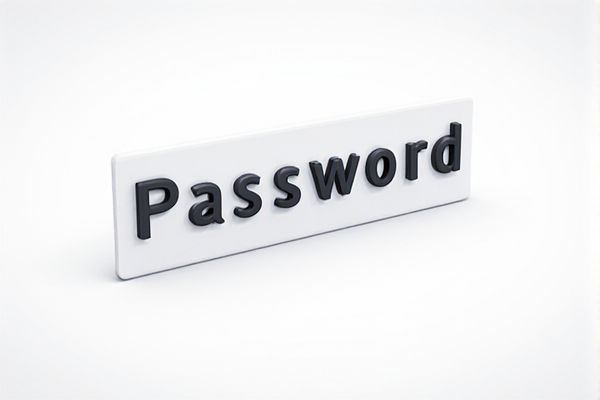
Create strong and secure passwords effortlessly with our random password generator, designed to produce 10-character combinations. Enhance your online security by using unique and complex passwords generated instantly. Start protecting your accounts with one click and experience hassle-free password management.
Online tool for random password generator 10 characters
We have prepared several samples of 10-character random passwords for you to use and customize. You can also enter your own list to generate random passwords. With a single click, the tool provides a randomized list and selects one password for immediate use.Data Source
Single Result
Multiple Results
Importance of Strong Passwords for Online Security
A random password generator creating 10-character passwords enhances online security by producing unpredictable and complex combinations of letters, numbers, and symbols. Strong passwords prevent unauthorized access and reduce the risk of cyberattacks such as brute force or credential stuffing. Utilizing secure, randomly generated passwords is essential to safeguarding personal and sensitive information on digital platforms.
Key Features of a 10-Character Random Password Generator
A 10-character random password generator creates secure, complex passwords by combining uppercase letters, lowercase letters, numbers, and special symbols, enhancing protection against brute-force attacks. Key features include high entropy for unpredictability, customization options such as character type selection, and rapid generation speed for convenience. This tool is essential for maintaining strong online security and reducing vulnerability to hacking attempts.
Benefits of Using 10-Character Passwords
A random password generator creating 10-character passwords strikes an ideal balance between security and usability, offering substantial complexity to resist brute-force attacks while remaining easy to remember. Ten-character passwords typically contain a mix of uppercase and lowercase letters, numbers, and special symbols, enhancing entropy and reducing the risk of unauthorized access. Using these strong, randomized passwords significantly improves protection against cyber threats like phishing and keylogging.
Common Use Cases for 10-Character Passwords
A random password generator producing 10-character passwords is widely used for securing personal accounts, email services, and social media profiles where moderate complexity is required. These passwords balance ease of memorization with sufficient entropy, making them ideal for everyday users and small business applications. Many platforms recommend 10-character passwords to protect against brute-force attacks while maintaining usability.
Randomness vs Predictability in Password Generation
A 10-character random password generator enhances security by producing unpredictable combinations of letters, numbers, and symbols that resist common hacking techniques such as brute force or dictionary attacks. Emphasizing true randomness over predictability reduces vulnerabilities caused by patterns or repeated elements, which can be exploited by cybercriminals. High-entropy passwords generated through cryptographically secure random number generators significantly improve protection against unauthorized access.
Best Practices for Creating Secure Random Passwords
Creating secure random passwords requires using a combination of uppercase and lowercase letters, numbers, and special characters to maximize complexity and resist brute-force attacks. Avoid common words, predictable patterns, or repeated characters to enhance unpredictability in 10-character passwords. Employing reputable random password generators that utilize cryptographically secure algorithms ensures truly random and strong password creation for optimal security.
Comparison: 10-Character vs Longer Passwords
A random password generator producing 10-character passwords offers a balance between security and memorability, but longer passwords significantly increase complexity and resistance to brute-force attacks by exponentially expanding the keyspace. While a 10-character password using uppercase, lowercase, digits, and symbols provides around 72^10 combinations, extending length to 16 characters increases combinations to 72^16, vastly enhancing protection against sophisticated hacking techniques. Security experts recommend longer passwords for high-risk accounts due to this superior entropy, despite the slight inconvenience of managing longer strings.
Integrating Password Generators into Daily Workflow
Integrating a random password generator with 10 characters into daily workflows enhances security by producing strong, unique passwords that are resistant to brute-force attacks and common vulnerabilities. Automated generation tools can be embedded in password management systems or web applications, streamlining user authentication processes and reducing manual input errors. Consistent use of these 10-character random passwords supports compliance with cybersecurity best practices and organizational IT policies.
Popular Tools for Generating 10-Character Passwords
Popular tools for generating 10-character passwords include LastPass, Dashlane, and Bitwarden, known for their customizable options and strong security features. These password generators create complex combinations of uppercase, lowercase letters, numbers, and special characters, enhancing protection against cyber attacks. Users benefit from the ability to quickly produce unique passwords that meet most platform requirements, improving overall digital security.
Frequently Asked Questions About Password Generators
Random password generators create secure, 10-character passwords using a mix of uppercase letters, lowercase letters, numbers, and symbols to enhance security and reduce vulnerability to hacking. Frequently asked questions often address the safety of these generators, the importance of using unpredictable character combinations, and whether password managers can store generated passwords securely. Many users also inquire about the ability to customize password length and complexity to meet specific account requirements.
 azrandom.com
azrandom.com